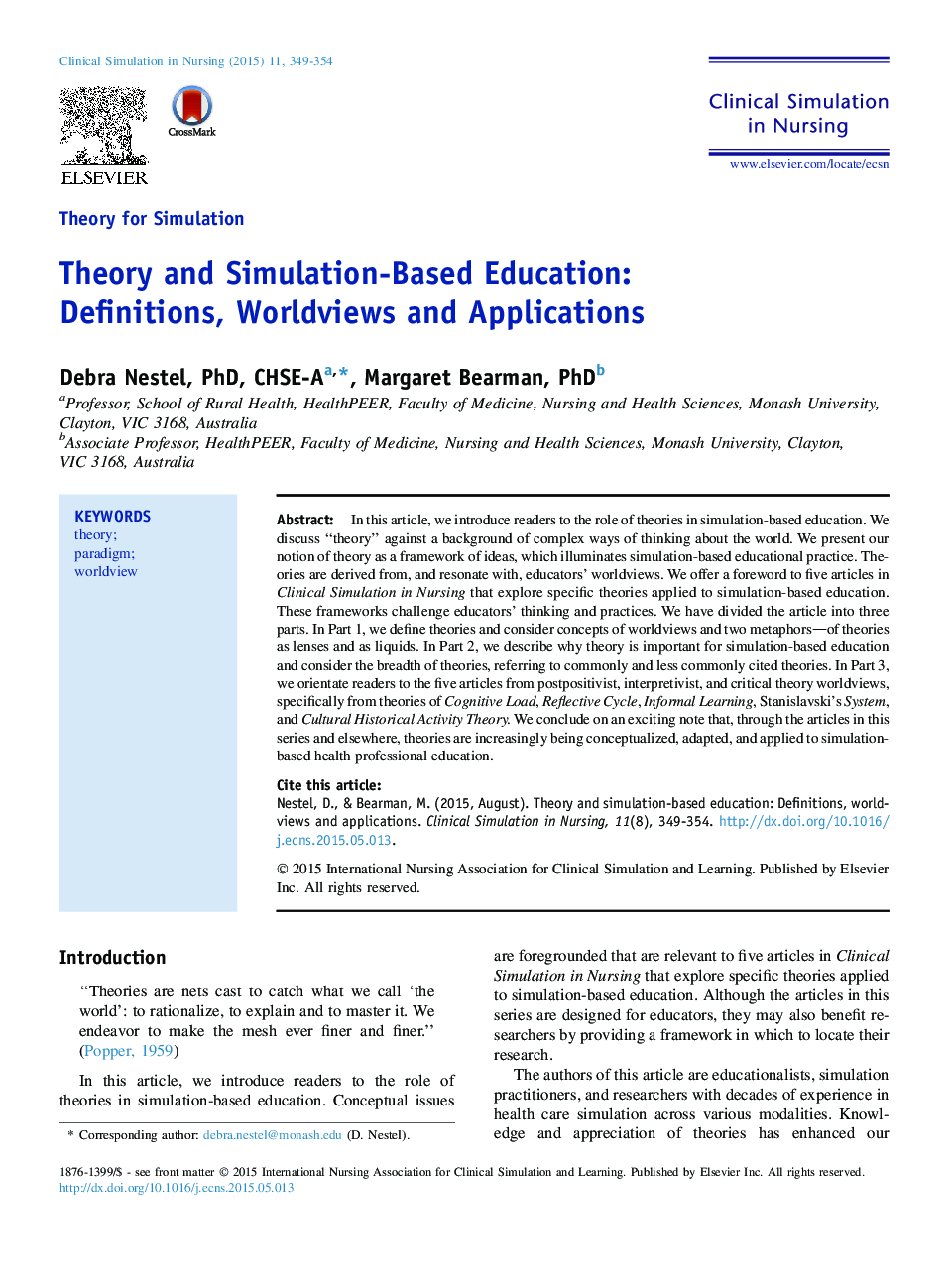| Article ID | Journal | Published Year | Pages | File Type |
|---|---|---|---|---|
| 5868245 | Clinical Simulation in Nursing | 2015 | 6 Pages |
In this article, we introduce readers to the role of theories in simulation-based education. We discuss “theory” against a background of complex ways of thinking about the world. We present our notion of theory as a framework of ideas, which illuminates simulation-based educational practice. Theories are derived from, and resonate with, educators' worldviews. We offer a foreword to five articles in Clinical Simulation in Nursing that explore specific theories applied to simulation-based education. These frameworks challenge educators' thinking and practices. We have divided the article into three parts. In Part 1, we define theories and consider concepts of worldviews and two metaphors-of theories as lenses and as liquids. In Part 2, we describe why theory is important for simulation-based education and consider the breadth of theories, referring to commonly and less commonly cited theories. In Part 3, we orientate readers to the five articles from postpositivist, interpretivist, and critical theory worldviews, specifically from theories of Cognitive Load, Reflective Cycle, Informal Learning, Stanislavski's System, and Cultural Historical Activity Theory. We conclude on an exciting note that, through the articles in this series and elsewhere, theories are increasingly being conceptualized, adapted, and applied to simulation-based health professional education.
